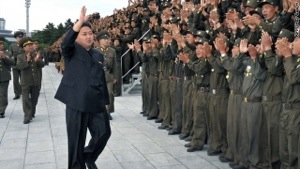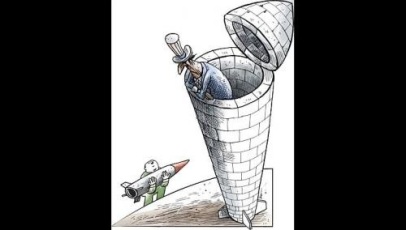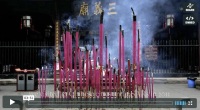Greetings readers – Here’s a daily selection of headlines on China worth taking note of.
Forbes talks up China’s intention of upping the ante on geothermal to kick the coal habit. 2012 saw China surpassing the US as the biggest trading nation on the planet by $0.05 trillion according to Bloomberg. The Daily Sheeple then provides an interesting analysis of this turning point in global trade not covered by mainstream media.China Daily/Xinhua repeats China’s resolve to ‘firmly’ oppose North Korea’s nuclear tests and the US National Intelligence Estimate establishes China as the US’s number 1 cyber threat.
– – –
Is China Slowly Giving Up On Coal? (Forbes)
The Beijing skyline is pretty, when you can see it. Take a breathe of that fresh Shanghai air? No thank you. Poor air quality in China has the locals up in arms, and the government might actually be listening.
China is aiming to produce natural gas of around 50 million tons of coal equivalent (TCE) annually by 2020, a government guideline issued last week from the Ministry of Land and Resources and the National Energy Administration said.
By 2015, geothermal energy shall supply power of 20 million tons of TCE annually as China tries desperately — if not haphazardly — to kick its coal habit.
China Eclipses U.S. as Biggest Trading Nation (Bloomberg)
China surpassed the U.S. to become the world’s biggest trading nation last year as measured by the sum of exports and imports of goods, official figures from both countries show.
U.S. exports and imports of goods last year totaled $3.82 trillion, the U.S. Commerce Department said last week. China’s customs administration reported last month that the country’s trade in goods in 2012 amounted to $3.87 trillion.
China’s growing influence in global commerce threatens to disrupt regional trading blocs as it becomes the most important commercial partner for some countries. Germany may export twice as much to China by the end of the decade as it does to France, estimated Goldman Sachs Group Inc.’s Jim O’Neill.
This Is It!: China Surpasses U.S. As Number One Global Trading Power (The Daily Sheeple)
Back in 2008, at the onset of the derivatives and credit collapse, I wrote several economic editorials discussing what I saw as the single most vital trend in the global fiscal system, and how it would cause a disastrous upheaval that would leave the U.S. and the dollar financially sunk. This trend, which seemed to take serious root in 2005, was the massive shift by China from an export dependent source of cheap manufacturing and labor, into a moderate exporter, and consumer hub, and currency powerhouse. In my view at the time, the evidence suggested that China was positioning itself to decouple from its dependence on U.S. markets and the dollar. I was, of course, attacked as a “doom monger” and “conspiracy theorist”. Five years later, the critics have changed their tune…
For the past decade, China has been slowly but surely issuing Yuan denominated bonds and securities around the globe, while simultaneously forming bilateral trade agreements with multiple nations and cutting out the U.S. dollar as the world reserve currency. This process has gone mostly ignored by the mainstream financial media. However, I and many other independent analysts could not overlook the red flags. I tried to summarize as much of the situation and facts as I could in my article ‘How The U.S. Dollar Will Be Replaced’, which was published in May of last year:
http://www.alt-market.com/articles/784-how-the-us-dollar-will-be-replaced
The biggest question for me was, if China is one of the largest holders of Forex reserves on the planet, and had the largest savings of any nation, WHY did they feel the need or desire in 2005 to begin issuing Yuan denominated debt? Why begin borrowing capital from foreign creditors? They certainly didn’t need the money. Why were they moving away from export dependency and building a consumer base? And why attempt to proliferate their currency? Wouldn’t the pursuit of global Yuan circulation lead to an eventual increase in valuation? Didn’t the Chinese want their currency cheap so that they could maintain export superiority? What did the Chinese know in 2005 that we didn’t?
China ‘firmly’ opposes DPRK’s nuclear test (China Daily)
BEIJING, Feb. 12 (Xinhua) — China “firmly” opposes the latest nuclear test conducted by the Democratic People’s Republic of Korea (DPRK), according to a statement issued by the Chinese Foreign Ministry on Tuesday.
“On Feb. 12, 2013, the DPRK conducted another nuclear test in disregard of the common opposition of the international community,” said the statement, adding that “the Chinese government is firmly opposed to this act.”
Chinese Foreign Minister Yang Jiechi also summoned DPRK ambassador to China Ji Jae Ryong later on Tuesday to lodge a solemn representation.
China Is America’s #1 Cyber Threat: U.S. Govt. Report (Yahoo Finance)
A new report by the National Intelligence Estimate confirms that China is America’s biggest cyber threat.
The report is classified, but people with knowledge of the findings spoke to The Washington Post on the condition of anonymity.
“The United States is the target of a massive, sustained cyber-espionage campaign that is threatening the country’s economic competitiveness,” according to the article. “The report, which represents the consensus view of the U.S. intelligence community, describes a wide range of sectors that have been the focus of hacking over the past five years, including energy, finance, information technology, aerospace and automotive.”
Filed under: Daily China Brief, Economics, Environment, North Korea















The Sharing Circle